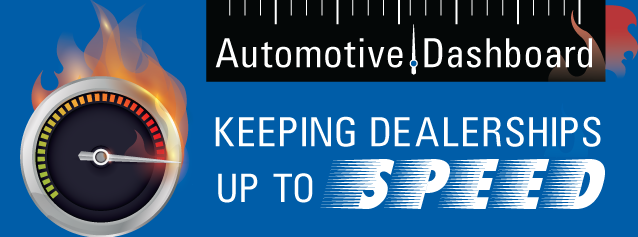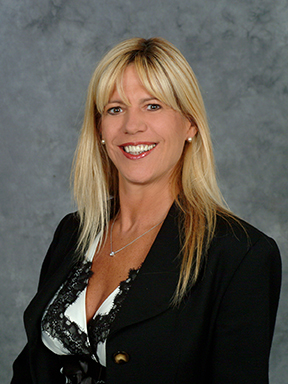Automotive Dashboard
 Techniques to Assess the Integrity of Cash Reporting: Part 1
Techniques to Assess the Integrity of Cash Reporting: Part 1
By: Sebastiano Banchitta, Manager
Bank Activity
The accountant, controller or office manager should obtain a report of the bank activity from the date of the last bank reconciliation through today. This should be performed regularly as an internal audit function. This report can easily be obtained via the bank logon. The report should show deposits and other additions as well as checks presented for payment, withdrawals and other subtractions along with a running balance.
Review the activity for the following items:
- Have any deposits been returned by the bank? Why were they returned? Has the returned deposit been posted to the general ledger? Have we contacted the payor to make good on the payment? Has the payor made good on the payment since contact?
- Has the company issued any checks that were not honored by the payee’s bank? Why were the company’s checks not honored? Has the bounced check been posted to the general ledger? Has the company made good on the payment to the payee?
- Has there been any major fluctuations in the daily balances or overdrafts? If overdrafts have occurred, it is important to immediately investigate the cause and take corrective and preventative measures by modifying daily processes and procedures.
- Perform the same review noted above for accounts with minimal activity and or zero balance.The answers to the questions above may shed light on brewing issues and trends, taking action to correct and prevent issues will lead to proper cash reporting.
Ask the Experts
 |
Sebastiano Banchitta T (732) 379-5215 [email protected]
|
 Disaster Preparedness Planning for Service
Disaster Preparedness Planning for Service
[author-style]By: Robert Campbell[/author-style]
Seeing the sadness and destruction happening in Houston/South Texas and Florida now, while it is fresh on our minds, would be a good time to do some research into disaster preparation planning. Think about it; between blizzards, wildfires, hurricanes, flooding, etc., every part of the country could potentially face some sort of natural disaster. Business interruption and good insurance is ideal, and your dealership probably has some degree of coverage to help the shop and the employees recover from the worst in the long-term. But let’s talk about what you can do, in the short-term, to get your shop up and running again. Here are some disaster planning steps that every service manager should take.
If you are not sure where to start in your planning FEMA has an excellent template (that can be located at here) that should cover a variety of situations.
In speaking with service managers who have been through the worst, you should form a storm or disaster crew. Since the news of an impending disaster usually precedes the event, many employees may take off prior to tend to family or personal obligations. Talk to your employees; find out who can be there up until and immediately following the event. You will need a dependable crew to do the work needed. It could be clear snow, secure the building and possibly relocate tool boxes, equipment and inventory away from rising waters.
Next, it is recommended to have an immediate post storm plan to ensure that your shop is up and running as soon as possible. Some things that you will face immediately after the storm could be: no power, no phone or Internet and physical damage. You should have a list of computer support people, electrical contractors, cleaning services, and whatever else you can think of before the storm hits. You could even schedule these services before the storm to get ahead of the rush.
By knowing who to contact and how the clean-up and recovery will be handled, you can help yourself and your co-workers get back to normal as soon as possible.
Ask the Experts
 |
Robert Campbell T (732) 379-5274 x5550 [email protected] |
 Form 8300 Audits
Form 8300 Audits
[author-style]By: Christine Andrews[/author-style]
For purposes of reporting, cash or cash equivalent means (1) United States and foreign currency in excess of $10,000, and (2) cashier’s checks (by whatever name called, including treasurer’s check and bank check), bank drafts, traveler’s checks or money orders having a face amount of not more than $10,000. Cashier’s checks, bank drafts, traveler’s checks or money orders in this category are considered reportable when 2 or more (as well as cash) are presented to a dealership and the total amount exceeds $10,000. Under the IRS regulations, personal checks, checks drawn on the account of a business, certified personal and business checks, and amounts charged to credit cards are not considered cash.
Dealerships should develop a written policy that explains how cash transactions over $10,000 will be handled in the dealership. Make sure that all affected employees (salespeople, managers, office staff) are aware of, and fully understand, their responsibilities set out in the policy statement. The policy statement should include a statement instructing salespeople not to discuss the cash reporting law with customers at any time or for any reason. All cash reporting inquiries should be referred to a designated person (i.e., the dealer, the general manager) who fully understands all aspects of the cash reporting laws.
You should always be prepared for some type of cash reporting audit in the future. Fines can reach $25,000 per violation. Develop policies and procedures that will help your dealership comply with the cash reporting laws and educate your employees as to their responsibilities under the regulations. Training Dealership staff is the most important way to stay current with the requirements of the Law. Withum offers in house training for 8300 reporting to the sales, F&I and office staff that are the front line in assuring that the forms are properly transmitted and controlled.
Ask Our Experts
 |
Christine Andrews T (732) 379-5274 x5520 [email protected] |


